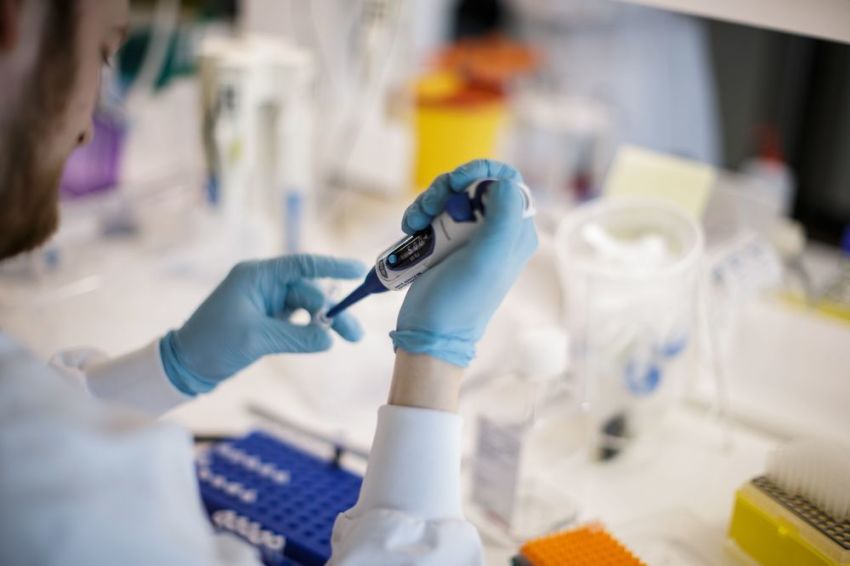ERLC answers moral questions about taking COVID-19 vaccines created by testing on cells from aborted baby

The Ethics & Religious Liberty Commission of the Southern Baptist Convention has cautiously answered the question of whether it's ethical for Christians to get the COVID-19 vaccine after some pro-life groups expressed disapproval of the vaccines because their development during the testing phase involved the use of cell lines taken from the tissue of an aborted baby.
“As Christians committed to the cause of human dignity, we affirm that a human life begins at the moment of conception,” the ERLC says in an explainer-article, recognizing “that every human life, even in the earliest or most advanced stages, bears all the rights and dignity of a person.”
Acknowledging also that “the use of fetal tissue in medical research and treatments is a matter of deep concern for believers,” it added that Christian ethicists “agree that fetal tissue donation is not inherently unethical if the tissue was obtained from a spontaneous abortion (miscarriage) or an ectopic pregnancy (a pregnancy in which the fetus implants in the fallopian tube instead of the uterus) and was willingly donated by the parent.”
Allowing and condoning donations of tissue derived from a baby that has been killed in the womb, however, “would make us indirectly morally complicit in the act of abortion, conveying a sense of approval for an ongoing regime that sanctions the killing of the unborn,” it added.
That raises the question of whether the use of cells from HEK293T – a cell line – would promote abortion in just such a way, the ERLC said in the explainer.
“While pro-life Christians may disagree on how to answer that question, it is unlikely that the use of the HEK293T cell line will lead to additional children being murdered in the womb in order to expand the number of fetal tissue cell lines. The reason is that it is completely unnecessary, and medically inexpedient, to create new cell lines from aborted children,” it said.
The ERLC also quoted the Rev. Nicanor Pier Giorgio Austriaco, a Catholic biomedical researcher, as explaining: “HEK293 is an established cell line. … These cells have been used and studied by biologists for nearly half a century. They are well characterized, and they have been validated for their safety. I point this out because it helps explain why it is unheard of for a vaccine manufacturer to seek out new human fetal cells from a recent abortion. Such novel fetal cells would be uncharacterized, unvalidated, and unapproved by regulatory agencies like the U.S. Food and Drug Administration for human vaccine production. Why waste time, effort, and money to obtain, characterize, and validate new human fetal cells when the classic fetal cell lines obtained decades ago like HEK293 are readily and cheaply available?”
Currently, the use of these cells in biomedical research is not increasing the number of abortions that are being carried out every year, the ERLC said. “If we were to see evidence of that happening, however, it would change the moral calculation.”
Georgia Right to Life announced recently that it did not morally approve of a vaccine that was created through the usage of aborted kidney tissue.
“We’re not giving medical advice to anyone,” said GRTL President Ricardo Davis in the announcement. “We’re just presenting the facts that most groups are ignoring because many pro-life advocates will have a problem taking such a vaccine.”
“Exploiting the death of a child for any reason — no matter how noble — is morally wrong. It denies the Personhood of a pre-born child,” the group added.
Davis went on to state that he believed there were “alternative, ethical ways to conduct such tests, as well as to produce a vaccine.”
“I encourage everyone concerned about the link between abortion, vaccine development, biomedicine, and human trafficking to demand that government support the development of vaccines that don't rely on the brutal act of abortion,” he continued.
The Bishops’ Conference of England and Wales recently released a statement regarding the AstraZeneca vaccine, which was approved by British authorities. The Rt. Rev. Richard Moth, chair of the Conference’s Department of Social Justice, acknowledged that there was some debate over “the use of the vaccines developed by Pfizer & BioNTech, Moderna, and AstraZeneca.”
Moth explained that the Congregation for the Doctrine of the Faith and the Pontifical Academy of Life had both said that “one may in good conscience and for a grave reason receive a vaccine sourced in this way, provided that there is a sufficient moral distance between the present administration of the vaccine and the original wrongful action.”
“In the COVID-19 pandemic, we judge that this grave reason exists and that one does not sin by receiving the vaccine,” continued Moth. “Each Catholic must educate his or her conscience on this matter and decide what to do, also bearing in mind that a vaccine must be safe, effective, and universally available, especially to the poor of the world.”



























